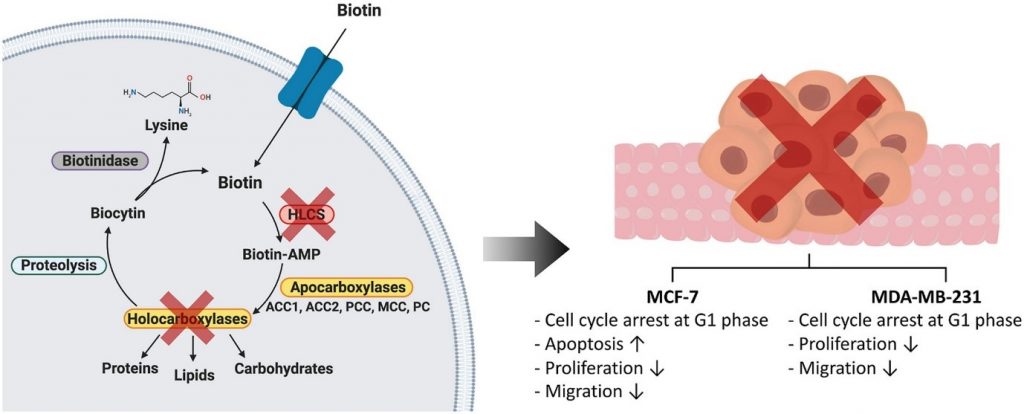
Metabolic reprograming in cancers is one of cancer hallmarks that allow cancer cell to expand and metastasize to other organs. Professor Sarawut Jitrapakdee and his research team have recently shown that the holocarboxylase synthetase (HLCS) enzyme, a sole enzyme responsible for biotinylation of biotin-carboxylase is upregulated in breast and colon cancer patients. Using genetic knockdown approach, his research team has recently shown that inhibition of HLCS in both low (MCF-7) and highly invasive (MDA-MB-231) cells line can reduce biotinylation of both pyruvate carboxylase (PC) and acetyl-CoA caraboxylase (ACC). The defective enzymatic activities of both PC and PCC causes in metabolic imbalances, resulting in slow growth and invasion, accompanied by G1 cell cycle arrest and apoptosis. This finding provides new insights to use HLCS as a novel anti-cancer drug target.
References
Siritutsoontorn S, Sukjoi W, Polyak SW, Akekawatchai C, Jitrapakdee S.Differential growth inhibition, cell cycle arrest and apoptosis of MCF-7 and MDA-MB-231 cells to holocarboxylase synthetase suppression. Biochem Biophys Res Commun. 2022 Jan 14;593:108-115. doi: 10.1016/j.bbrc.2022.01.049.
| Relevant SDGs | |
|---|---|
 |
|
| BC investigator | |
 Prof. Sarawut Jitrapakdee Prof. Sarawut Jitrapakdee |
